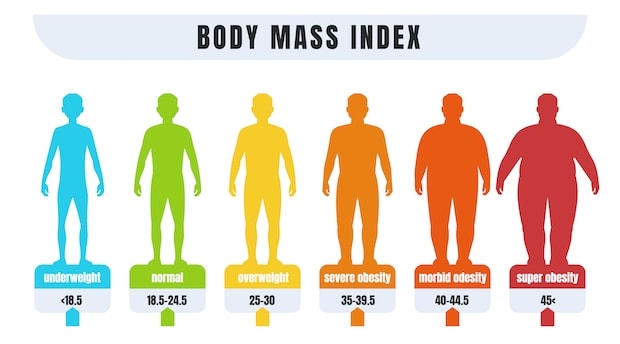How to Choose the Right Approved Medication for Weight Loss
How to Choose the Right Approved Medication for Weight Loss
Table of Contents
I. Understanding Approved Weight Loss Medications
II. How to Choose the Right Medication
III. Getting Started with Approved Weight Loss Medications
IV. Make the Right Choice with ScriptsMD
Choosing the proper weight-loss medication can be a lot when so many options are available. Approved treatments are designed to help when diet and exercise alone are insufficient. These medications target different aspects of weight management, including appetite regulation and improved metabolism.
Finding the best option means understanding how each medication works and whether it aligns with your health needs. Your health history and potential side effects should be considered before beginning treatment.
This guide will explain the most common approved weight loss medications and what to discuss with your healthcare provider. Making an informed decision helps you find the treatment that fits your needs and goals.
Quick Takeaways
- Medication choices should be guided by health history and weight loss challenges.
- Accessing weight loss medication through telehealth services offers convenience and safety.
- Following your provider’s instructions and maintaining healthy habits are essential for long-term success.
- GLP-1 receptor agonists like semaglutide are proven effective for significant weight loss.
- Metabolism boosters such as naltrexone-bupropion can reduce cravings and enhance metabolic function.
Understanding Approved Weight Loss Medications
What Are Approved Weight Loss Medications?
Approved weight loss medications are prescription treatments intended for individuals who have struggled with diet and exercise alone. They are often recommended for those with a body mass index (BMI) of 30 or higher. Patients with a BMI of 27 or above who have weight-related conditions such as high blood pressure or diabetes may also qualify. This approach allows people to pursue medically guided weight loss under the supervision of licensed healthcare providers.
These medications address different aspects of weight management. Some reduce appetite, while others improve how the body processes food or boosts metabolism. Specific treatments can enhance metabolic efficiency, making weight loss efforts more effective. The goal is to provide support when lifestyle changes are insufficient to produce lasting results.

Types of Weight Loss Medications
Finding the proper weight-loss medication requires understanding how each option works and what makes it effective. Various medications are designed to target different aspects of weight management.
- GLP-1 Receptor Agonists: These treatments, including semaglutide (Wegovy) and tirzepatide, help regulate appetite and support steady weight loss. 1
- Appetite Suppressants: Medications like phentermine work by reducing hunger signals, making it easier to maintain a reduced-calorie diet. 2
- Metabolism Boosters: Naltrexone-bupropion is commonly prescribed to enhance metabolic function and reduce cravings.
- SGLT2 Inhibitors: Medications such as canagliflozin promote moderate weight loss by increasing glucose excretion. 3
- Compound Pharmacies: Many medications are available in alternative, customizable forms through compound pharmacies.
Choosing the right medication involves evaluating your health needs and discussing these options with a healthcare provider.
How to Choose the Right Medication
Factors to Consider When Selecting a Medication
Choosing the proper weight loss medication requires thoroughly evaluating your overall health and treatment needs. Providers consider past weight loss challenges, ongoing medical conditions, and how previous approaches have affected your progress. They also assess factors that may complicate weight loss and whether certain medications align with your health profile.
- Reviewing past treatments shows what hasn't worked.
- Medical history guides medication choices.
- Understanding current health needs helps determine suitable medications.
A detailed review helps determine the most suitable treatment plan. Providers develop strategies based on your personal history and current needs, offering guidance and monitoring to ensure the medication remains effective and supports your weight loss.

Consulting with a Healthcare Provider
Talking with a healthcare provider about weight loss medications is essential to finding the proper treatment. Providers assess your health history and personal goals to determine whether prescription medication is appropriate. They explain how different medications work and what to expect from each option.
Providers also discuss potential side effects and provide guidance on safely using the medication. They help you create a treatment plan for your lifestyle and health needs. Regular follow-ups allow adjustments to your plan, ensuring you stay on track and continue making progress toward your weight loss goals.
Getting Started with Approved Weight Loss Medications
The Process of Obtaining a Prescription
Obtaining prescription weight loss medication starts with a thorough consultation with a licensed provider. The provider evaluates your health background and ongoing weight loss efforts to determine whether prescription medication is suitable.
- Health History Review: Providers look for conditions affecting weight loss, such as metabolic disorders or previous treatment failures.
- Medication Approval Process: If appropriate, the provider prescribes medication, which can be filled through a licensed pharmacy.
Some providers offer telehealth services, allowing patients to access care more conveniently. Regular follow-ups help ensure the treatment remains safe and continues to support your weight loss goals.

Best Practices for Safe and Effective Use
Follow your provider’s instructions to achieve the best prescription weight loss medication results. Effective treatment relies on consistency and adherence to the recommended plan. Healthy lifestyle habits, including proper nutrition and regular activity, can further enhance the medication's effectiveness.
Tracking progress allows you to identify areas where adjustments may be needed. Communicating with your provider about side effects or other concerns ensures that treatment remains safe and effective. Adjustments to your plan may be necessary to maintain progress. Staying consistent and proactive in your approach improves the likelihood of reaching your weight loss goals.
Make the Right Choice with ScriptsMD
Finding the proper weight-loss medication involves understanding your options and working with a healthcare provider to ensure safety and effectiveness. Discussing your health history and ongoing challenges will help determine the most suitable treatment, but you need the right partner.
Prescription medications are most effective with supportive lifestyle changes and consistent medical guidance. Establishing a plan with ScriptsMD will improve your chances of achieving lasting weight loss. Making thoughtful decisions about your treatment can help you achieve your health goals and enhance your overall well-being.
Ready to start your weight loss journey with the proper medication? Reach out to ScriptsMD today and find out which treatment is best for you!
References
- Cleveland Clinic GLP-1 Agonists
- Meera Shah Is phentermine a good choice for weight loss?
- The Mayo Clinic Description of Canagliflozin (oral route)
